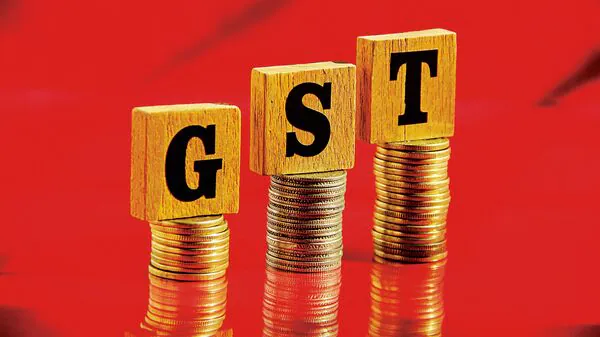
Delayed Refunds, Denied Tax Credits: For Businesses, A Long Struggle May Be About To End
After the recent tax rate cuts, the Goods and Services Tax (GST) Council, the apex decision-making committee on indirect taxes, next plans to make availing of tax credits and claiming tax refunds easier by potentially eliminating data mismatches, according to two persons aware of discussions in the government.
It also plans to put an end to tax notices that get issued for information mismatches that do not suggest tax evasion.
If carried through, the changes could ease the working capital requirements of businesses by releasing locked tax credits.
The idea is to make the technology-driven tax system that collects data at every stage in the value chain and enables flow of tax credits from business to business more user-friendly than tax administration-friendly.
As part of this, rules and GST filing forms will be reworked for an easier flow of tax credits across businesses. For instance, populating data in different forms and their updation or correction which face technical difficulties will be streamlined, one of the persons said.
Also Read | Navaratri boom: See how GST cuts ignited India's festive spendinQueries emailed to the finance ministry on 26 September seeking comments remained unanswered.
Improving the flow of tax credits has historically been a major cause for tax disputes even in the pre-GST era. While the problem has eased up since 2017 when GST was introduced, many tax credits remain blocked, leading to liquidity and working capital issues at businesses. These typically happen due to human errors, mismatches in tax invoicing, past filings not being updated, and other reasons-besides the use of fake invoices and fraudulent claims made somewhere in the chain of goods production or rendering services.
There is no official data readily available for the extent of input tax credit blocked for businesses due to such mismatches. However, government data puts input tax credit related frauds ₹1.78 trillion in the five years to fiscal 2025. Some of it may be contested or dropped based on responses given by businesses.
In the GST regime, a buyer pays taxes on the input used in a product or service plus the tax on the value addition or mark-up in that stage. But only the tax on the value addition is remitted to the government by the seller, as the tax on inputs or services used have already been paid by him, for which credit is available to him. With successive stages of value addition and passage of tax credits from one entity to another, the chances of errors creeping in–and tax credits getting blocked–grow.
Also Read | E-commerce under watch: Are GST cuts really reaching shoppersCredit availability is a vital issue given that tax liability of large businesses runs into large amounts depending on the size and nature of the company. Official data showed that in FY25, over 15,350 companies with sales above ₹500 crore paid ₹7.7 trillion to state and central governments to meet their GST liability. The figure was ₹2.35 trillion for some 61,400 businesses with sales in the ₹100-500 crore range.
An expert said introducing flexibility in the process will improve the ease of doing business given how the extent of tax paid at each stage and credits vary across industries and businesses. "Streamlining the input tax credit related provisions will help the industry as it would ensure that working capital remains unaffected by increased cash payments towards taxes," said M.S. Mani, partner at Deloitte India.
The first person cited above said that further GST reforms will be finalized with the consensus of states.
Another expert said he expects the invoice management system (IMS), a feature used in GST's online system to ensure tax credit claims are backed by genuine tax payments and invoices, may be made compulsory. IMS is now an optional feature.
Also Read | Insurance agents, brokers may get lower commission after GST cutMaking IMS compulsory would mean "buyers and sellers will have to reconcile any differences on the transaction's details before tax credit can be claimed by the buyer. Any disagreements between the parties may lead to commercial disputes between them, not tax disputes with the government," said Rajat Mohan, senior partner at AMRG & Associates.
“Stability in the tax system is also crucial for the ease of doing business as continuous changes to rules and procedures will warrant regular modifications to enterprise resource planning (at companies)," said Mohan.
Legal Disclaimer:
MENAFN provides the
information “as is” without warranty of any kind. We do not accept
any responsibility or liability for the accuracy, content, images,
videos, licenses, completeness, legality, or reliability of the information
contained in this article. If you have any complaints or copyright
issues related to this article, kindly contact the provider above.

















Comments
No comment